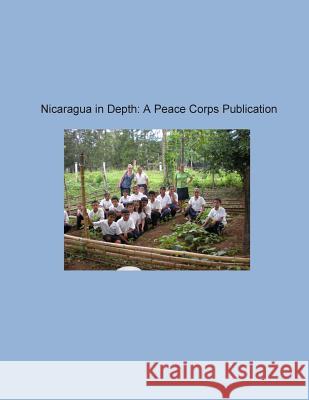Nicaragua in Depth: A Peace Corps Publication » książka
Nicaragua in Depth: A Peace Corps Publication
ISBN-13: 9781502357199 / Angielski / Miękka / 2014 / 44 str.
Nicaragua probably derives its name from an Indian chief, Nicarao, who ruled part of the area at the time of the Spanish Conquest. Christopher Columbus, in 1492, was the first European to touch Nicaraguan soil. Francisco Hernandez de Cordoba followed in 1524 and founded the principal colonial cities of Granada and Leon. Granada evolved into a stronghold of the aristocracy, and Leon became the political and intellectual capital. The rivalry between these cities persists to this day. For three centuries, Nicaragua was a province of the Captaincy General of Guatemala, as the Spanish called their territories south of Mexico. Independence from Spanish rule came in 1821, and, for a short period of time, Nicaragua was a member of the Central American Federation, which included Guatemala, Honduras, El Salvador, and Costa Rica. In 1838, Nicaragua became an independent republic. For the next 100 years, Nicaragua experienced periods of war and peace, including an attempted takeover by American William Walker in 1855. Walker was defeated and killed by an alliance of Central American nations. After another period of unrest in the early 1900s, Nicaragua's president invited U.S. Marines to restore and maintain order in the country. In 1934, the government was taken over by General Anastasio Somoza Garcia, initiating more than 40 years of family rule under a military dictatorship. In 1972, downtown Managua was destroyed by an earthquake that killed tens of thousands. Managua was never completely rebuilt and has become a sprawling city without a center. In 1979, the Somoza regime was overthrown by a populist revolution, and was replaced by the Marxist Sandinista National Liberation Front (FSLN), which ruled until 1990. This period included a U.S. government-supported civil war against the Sandinista government. A 1989 accord permitted free elections in 1990, in which Violeta Barrios de Chamorro, known for her conciliatory nature, became president. Nicaragua has experienced relative peace since 1990, and the country has celebrated four successive free elections to date."
Zawartość książki może nie spełniać oczekiwań – reklamacje nie obejmują treści, która mogła nie być redakcyjnie ani merytorycznie opracowana.











